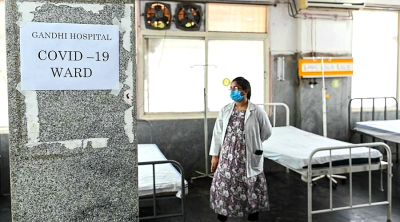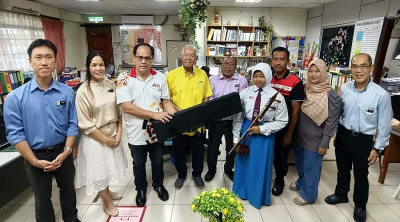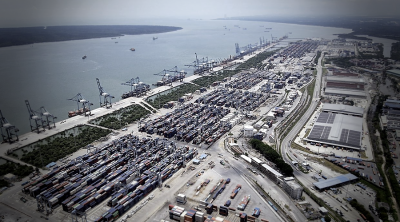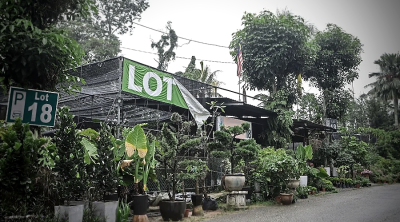Sin Chew Daily
2021 has not been a great year for our country, and with only ten days left before we bid the eventful year adieu, there is little prospect for a dramatic twist of fate for Malaysia. “A prosperous year” was at best what Malaysians could “hope” at the start of the year.
Coincidentally, the word 盼 (hope) is the Chinese word of the year for both Malaysia and Singapore. Other than the coronavirus vaccine that we had indeed hoped for, we were also treated with a host of other less welcome things like an upsurge in the pandemic, new virus variants, more political struggles, an unexpected change of PM, and ill-timed massive floods towards the end of the year.
Hopefully all the bad luck has been consumed this year and no more for the coming year, please!
December is the rainiest month on the peninsula and monsoon floods are a perennial event year after year as if something contracted with the Almighty long ago, albeit this year’s episode is way more disastrous. Of the 11 states on the peninsula, eight were ravaged by the floods, with tens of thousands of families displaced. No one can tell whether more rain will fall and more homes will be submerged over the next few days.
Year-end floods are an old problem in this country, and they are by no means happening by chance. Starting from 1957 when the nation gained its independence, has it ever been a single year Malaysians are totally spared from the floods? And now even the country’s capital and most developed state are inundated!
If we were to inspect the annual budgets tabled by the government in more recent years, we should be able to tell that flood mitigation, building of embankments and regular maintenance of drainage system have never been prioritized by past and present governments.
It is imperative that the new government change its mentality. Bear in mind that flood mitigation and road construction are equally important.
We would like to urge the government to seriously consider drawing up a 10-year flood mitigation program to systematically train meteorological experts and set aside annual budgetary allocations for this purpose, beginning with the improvement of our existing drainage system in flood-prone areas.
So long as we put in the effort, there is no flood so big that we are not able to control. It will never be too late if we get down to work now!
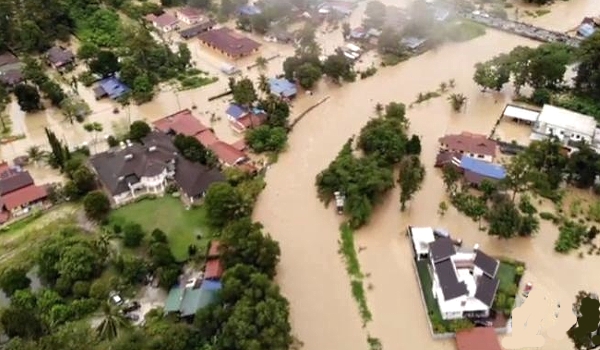
The annual northeast monsoon has perpetually reminded us when we will be hit with floods. We should have done something to ensure that our drainage system is well maintained enough to cope with the anticipated surge in year-end rainfall. No one should conveniently blame the excessive rainfall that comes during a high tide. We should instead ask ourselves what we have done before the monsoon season.
If we were better prepared ourselves, the floods would not have come this serious at all!
The storm waters will subside one day, for sure. But what about the pandemic which has plagued this planet for two years now? There is no sign the pandemic is weakening anytime soon, and now we have a much more transmissive new variant Omicron ready to strike.
Omicron was first detected in Botswana in southern Africa on November 9, and was subsequently classified as a “Variant of Concern” (VOC) by the WHO on November 24.
By December 20, only 40 days since the first coronavirus case involving the Omicron variant was first reported, large-scale community infections involving the variant have been reported in 143 countries worldwide.
In the United States, for instance, since the Delta variant became the dominant transmission medium in June, some 99.5% of new infections up till late November involved the Delta variant. Nevertheless, the latest US statistics shows that 73% of last week’s new cases were related to Omicron which has now overtaken Delta as the most dominant variant.
We mustn’t think that Omicron does not kill. In the United Kingdom, already 12 Omicron deaths have been reported. So far WHO and epidemiological experts worldwide still cannot make a conclusive judgment on Omicron’s lethality although its high transmissibility is beyond question. The only things we can do now are to take a third booster dose and strictly adhere to the SOPs.
The catastrophic floods came at a wrong timing as the nation was still fighting very hard to tame the virus. The health ministry has detected 181 positive COVID-19 cases at temporary evacuation centers.
Minister Khairy Jamaluddin has said some of the evacuees did not put on face masks or follow the SOPs when they fled the floods, and as such the number of positive cases among the flood victims is expected to rise further.
His Majesty Yang di-Pertuan Agong decreed on Monday that all flood victims at relief centers must undergo COVID-19 screening tests in a bid to prevent the emergence of new infection clusters.
Fighting two wars concurrently against the floods and virus poses a major challenge for both the Malaysian public and the health ministry. We can only “hope” that the Almighty will have some mercy on this country to take us safely past the difficult times.
ADVERTISEMENT
ADVERTISEMENT









